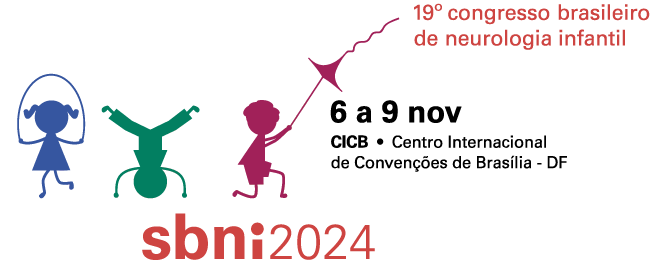Dados do Trabalho
Título
CANNABIDIOL ANALOGS: NEW PERSPECTIVES IN THE TREATMENT OF EPILEPSY IN IN VITRO AND IN VIVO MODELS
Introdução
Epilepsy is a neurological disorder affecting 80 million people worldwide, manifesting as unpredictable and recurrent seizures. The adverse effects of conventional treatments, as well as their ineffectiveness in refractory cases, have driven the search for alternative treatments for epilepsy, such as cannabidiol (CBD).
Objetivo
To evaluate the potential effects of CBD and its analogs, 302 and 309, in various experimental models of epilepsy, both in vitro and in vivo.
Método
All experiments were conducted with the approval of the institution's Animal Ethics Committee. Based on previously conducted cellular viability studies by our research group, a concentration of 10 µM was selected for CBD and its analogs in in vitro models. Initially, a cellular viability test was performed on astrocytes pretreated with CBD and the analogs, in response to 1 mM L-glutamate stimulation. The process of reactive astrogliosis associated with epilepsy was also evaluated through immunofluorescence and glial fibrillary acidic protein (GFAP) staining. Additionally, intra- and extracellular glutamate concentrations were determined using HPLC. Finally, neuronal electrical activity was assessed. In the in vivo model, the pentylene tetrazole (PTZ)-induced epilepsy model was used in P11 Wistar rats, analyzing latency and seizure duration parameters, and in 7 dpf zebrafish larvae, where the analyzed parameters were: speed, distance, and rotation. Group comparisons were performed using ANOVA.
Resultados
The results indicate that CBD and its analog 309 (10 µM) were able to reverse the loss of cellular viability induced by glutamate, a result consistent with GFAP expression and glutamate quantification by HPLC, where analog 309 showed GFAP expression similar to the control group and an increase in intracellular glutamate uptake. Furthermore, neuronal electrical activity assessments demonstrated that analogs 302 and 309 could normalize the average percentage of spikes. In the in vivo model, in rats treated with 30 mg/kg of CBD and the analogs, no differences were observed in the evaluated parameters. However, in zebrafish, exploring three different concentrations (10, 35, 100 µM), the analogs had a beneficial effect compared to the PTZ group, as both analogs reduced speed and distance, with 309 significantly decreasing rotation behavior commonly observed in epileptic zebrafish.
Conclusão
The effects seen with CBD analogs 302 and 309 suggest their potential as promising candidates in the search for anticonvulsant agents.
Referências
WORLD HEALTH ORGANIZATION (WHO). Epilepsy. 2024. Available at: https://www.who.int/news-room/fact-sheets/detail/epilepsy. Accessed on: July 24, 2024.
PETERSON, A. R.; BINDER, D. K. Astrocyte Glutamate Uptake and Signaling as Novel Targets for Antiepileptogenic Therapy. Frontiers in neurology, v. 11, p. 566049, 2020.
SKYTT, D. M.; KLAWONN, A. M.; STRIDH, M. H. et al. siRNA knock down of glutamate dehydrogenase in astrocytes affects glutamate metabolism leading to extensive accumulation of the neuroactive amino acids glutamate and aspartate. Neurochemistry International, v. 61, n. 4, p. 490–497, 2012.
BARBALHO, Patrícia Gonçalves et al. Cyclooxygenase-1 as a potential therapeutic target for seizure suppression: evidences from zebrafish pentylenetetrazole-seizure model. Frontiers in neurology, v. 7, p. 200, 2016.
BARABAN, Scott C. et al. Pentylenetetrazole induced changes in zebrafish behavior, neural activity and c-fos expression. Neuroscience, v. 131, n. 3, p. 759-768, 2005.
Fonte de Fomento (se houver)
Financial support: Coordenação de Aperfeiçoamento de Pessoal de Nível Superior – Brasil (CAPES) – Código de Financiamento 001
Palavras Chave
Seizure Threshold; Neuroprotection; Behavioral Analysis
Área
Epilepsias
Autores
MARINA FIUZA SILVA, MILTON KENNEDY AQUINO JÚNIOR, NATÁLIA BARBOZA DA SILVA, CLAUDIO VIEGAS JUNIOR, GRAZIELLA REIS FRANCO, CLAUDIA VIANNA MAURER MORELLI, VICTOR RODRIGUES SANTOS, NATHALIA PEIXOTO, MARÍLIA GABRIELA ALVES GOULART PEREIRA
